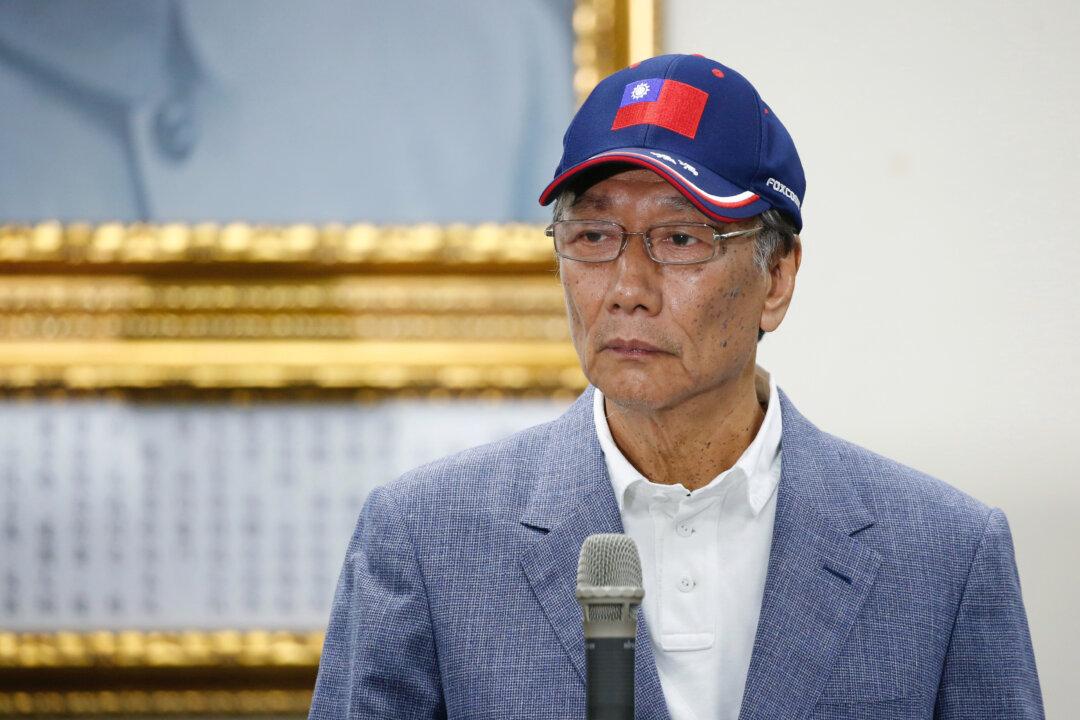TAIPEI—While Foxconn chairman Terry Gou enters Taiwan’s rancorous political arena free of any political baggage, he could yet find himself weighed down by connections to Beijing forged during his pragmatic commercial rise.
Gou, 68, announced on April 17 that he would contest Taiwan’s 2020 presidential election, seeking to represent the opposition Kuomintang (KMT) party—a vote that comes after a period of increasing tension between Beijing and the self-ruled island.





